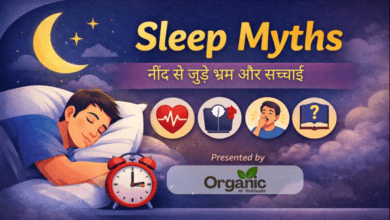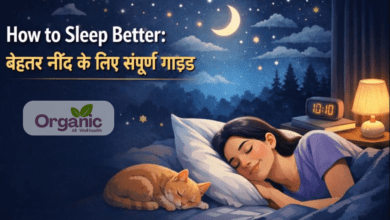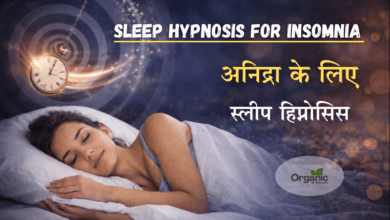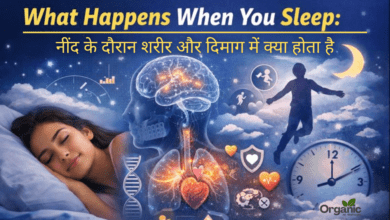Is It Better to Sleep for 1 to 2 Hours? A Deep Dive into Sleep Science
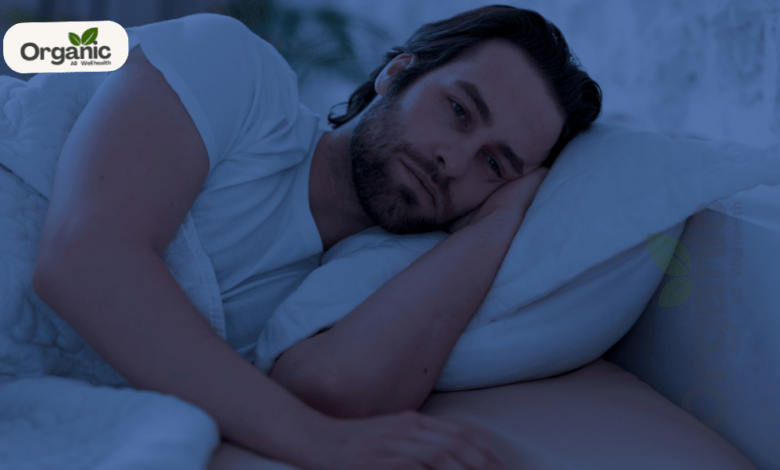
In a fast-paced world where work, travel, and deadlines dominate our routines, it’s not uncommon to face situations where we only have one to two hours of rest before another busy day. The question that arises is: Is it better to sleep for 1 to 2 hours or skip sleep entirely?
This comprehensive guide by the allwellhealthorganic team explores the science behind short sleep durations, the pros and cons of sleeping for 1–2 hours, and expert-recommended practices for better sleep quality. Whether you’re a student, a night-shift worker, or simply someone burning the midnight oil, this article offers critical insights into short-term rest and long-term well-being.
The Science of Sleep – Why It Matters
Sleep is not just rest; it’s a biological necessity. During sleep, our bodies repair tissues, consolidate memories, balance hormones, and recharge the immune system. Skipping sleep or not getting enough of it can have cascading effects on physical, mental, and emotional health.
What Is a Sleep Cycle?
The average adult experiences 4 to 6 sleep cycles per night, each lasting about 90 to 110 minutes. These cycles include four main stages:
- Stage 1 (NREM N1) – Light sleep; transition from wakefulness.
- Stage 2 (NREM N2) – Heart rate slows, temperature drops.
- Stage 3 (NREM N3) – Deep sleep; crucial for physical recovery.
- Stage 4 (REM) – Dreams occur; essential for brain function and emotional processing.
Sleeping for 1 to 2 hours may allow completion of one full sleep cycle, making it more beneficial than no sleep at all.
Is It Better to Sleep for 1 to 2 Hours Than Not Sleep?
The Case for 1 to 2 Hours of Sleep
Many sleep experts and studies indicate that getting even one full cycle of sleep can reduce grogginess and improve alertness, as opposed to staying awake all night.
Short sleep helps in:
- Reducing sleep pressure (the biological need for sleep that builds over time).
- Enhancing mood stability and reducing irritability.
- Providing minimal cognitive restoration, especially when REM sleep is achieved.
- Improving reaction time and reducing risk-prone behavior like drowsy driving.
The allwellhealthorganic team recommends prioritizing at least 90 minutes of rest when a full night’s sleep is not possible.
The Downside of No Sleep at All
Choosing not to sleep, even when possible, can lead to acute sleep deprivation, which affects:
- Judgment and decision-making
- Focus and memory
- Mood and emotional regulation
- Physical coordination and immune response
Research shows that being awake for 24 hours straight impairs cognitive performance similarly to someone with a blood alcohol content of 0.10%, which is over the legal limit for driving in many countries.
Also Read: Improve Sleep Quality Naturally | 10 Proven Tips for Restful Nights
The Impact of Short-Term Sleep on the Body
Even brief sleep episodes provide biological benefits. Here’s how:
Hormonal Regulation
During sleep, your body balances essential hormones such as cortisol, insulin, and growth hormone. In just one sleep cycle, hormonal activity can stabilize temporarily, which can be critical for stress management.
Memory and Brain Function
Short-term rest can still assist in memory consolidation and neural detoxification via the glymphatic system. While it’s not as thorough as full sleep, it is significantly better than none.
Emotional and Psychological Relief
Lack of sleep increases the brain’s emotional reactivity. Even 1 to 2 hours of rest can help you regulate emotions better and think more clearly.
Understanding Sleep Pressure and Sleep Inertia
What Is Sleep Pressure?
Sleep pressure is your body’s increasing urge to sleep, controlled by a chemical called adenosine. The longer you stay awake, the more adenosine accumulates, making you drowsy.
Sleeping for 1 to 2 hours helps reduce sleep pressure, even if it doesn’t eliminate it completely.
Sleep Inertia – Why You Feel Groggy
If you wake up during deep sleep (stage 3), you may experience sleep inertia, a condition where grogginess, disorientation, and impaired thinking can last up to 30 minutes or more. Completing a full 90-minute cycle reduces the risk of this.
Comparing Short Sleep to Power Naps
While power naps (10–30 minutes) are ideal for a quick energy boost and improved alertness, 90-minute naps are more restorative and involve REM sleep. If you have 1 to 2 hours to spare, opt for the full cycle instead of a nap.
Long-Term Risks of Chronic Sleep Deprivation
It’s important to understand that relying frequently on 1 to 2 hour sleep sessions is not sustainable. Chronic sleep deprivation can lead to:
- Obesity
- Diabetes
- Cardiovascular diseases
- Weakened immune system
- Mental health disorders like anxiety and depression
The allwellhealthorganic team advises that while short-term sleep hacks are helpful occasionally, they should not replace proper sleep routines.
CDC Recommendations for Healthy Adults
According to the Centers for Disease Control and Prevention (CDC):
Falling short regularly puts your health at risk. If time is limited, even partial sleep is better than none, but long-term lifestyle changes are necessary.
Tips for Improving Sleep Hygiene
Set a Fixed Sleep Schedule
Go to bed and wake up at the same time every day — including weekends. Consistency strengthens your circadian rhythm.
Create a Sleep-Friendly Environment
- Keep the bedroom cool, dark, and quiet.
- Use blackout curtains or sleep masks if needed.
- Avoid screens at least 30 minutes before bed.
Watch What You Consume
- Avoid caffeine after 2 PM.
- Refrain from heavy meals and alcohol before bedtime.
- Stay hydrated, but avoid excessive fluid intake at night.
Incorporate Regular Physical Activity
Exercising during the day promotes deeper sleep. However, avoid intense workouts close to bedtime.
Practice Relaxation Techniques
Meditation, deep breathing, or even light stretching before bed can help you fall asleep faster and stay asleep longer.
These sleep hygiene practices are central to better rest, and allwellhealthorganic consistently emphasizes their importance for long-term well-being.
When to Seek Medical Advice
If you’re practicing good sleep hygiene and still struggling to fall or stay asleep, it may be time to consult a doctor. You may be experiencing:
- Insomnia
- Sleep apnea
- Restless leg syndrome
- Circadian rhythm disorders
These conditions require medical intervention, and early diagnosis can improve your quality of life significantly.
Sleep Strategies for High-Pressure Situations
When facing a critical deadline, overnight travel, or emergency caregiving, here are ways to maximize minimal sleep:
- Set an alarm for 90 minutes, ensuring one full cycle.
- Use white noise or sleep music to fall asleep faster.
- Keep the room cool — around 65°F (18°C) is optimal.
- Use an eye mask and earplugs to block distractions.
- Don’t obsess over sleep — relaxing your mind helps more than forcing sleep.
Final Takeaway – Is It Better to Sleep for 1 to 2 Hours?
Absolutely, yes. If you’re ever in a situation where you must choose between no sleep or 1 to 2 hours of rest, always opt for sleep. A single 90-minute cycle can help reduce grogginess, enhance your mental clarity, and restore some physical energy.
That said, this should not become a habit. Adults should aim for 7 to 9 hours of sleep nightly, and the allwellhealthorganic team strongly advocates for better sleep hygiene and health education to support this goal.
Disclaimer: This advice is for general informational purposes only. It is not a substitute for professional medical advice. Always consult an expert or your own doctor for more information. WellHealthOrganic is not responsible for the accuracy of this information.
